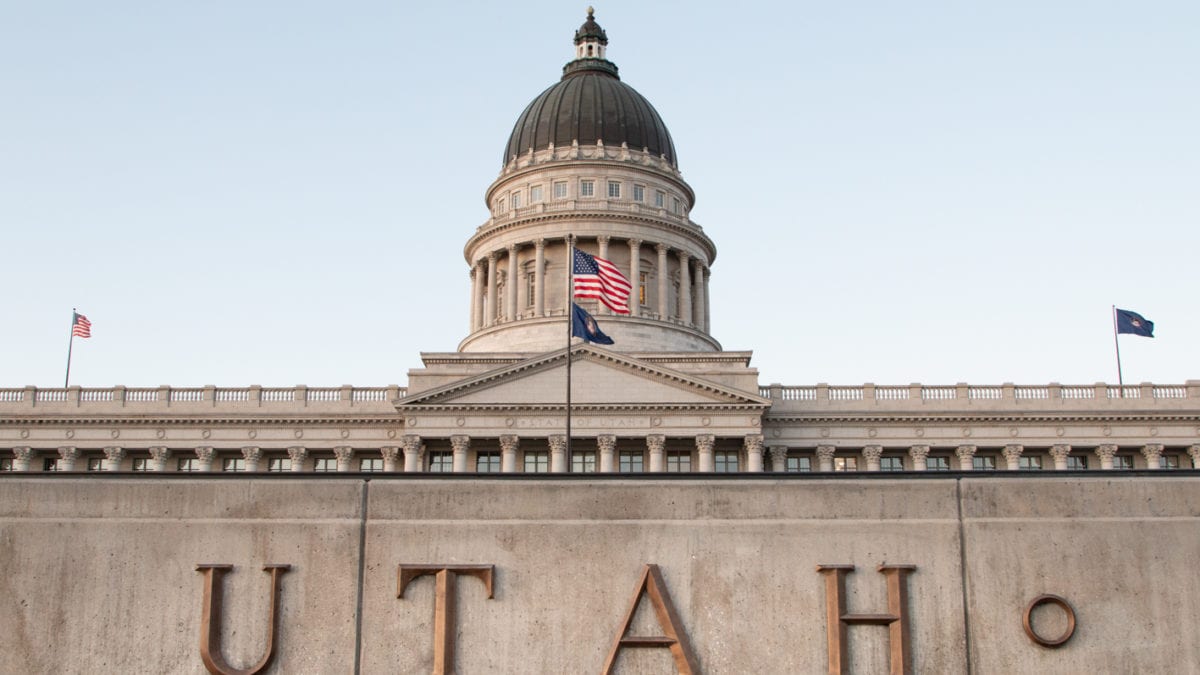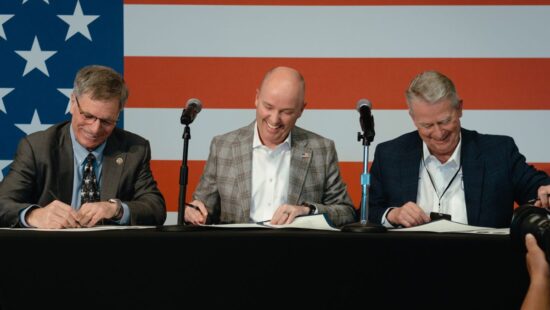Politics
Utah’s income tax rate lowered to 4.55% as Governor signs $167M tax cut bill

The Utah State Capitol building in Salt Lake City. Photo: TownLift // Bailey Edelstein
Analysis: SB69 will largely benefit the wealthy. Those in top 1% will save $2,676 a year, while those in bottom 20% will get $24
By: Katie McKellar, Utah News Dispatch
Utah Gov. Spencer Cox on Thursday signed into law a bill to lower the state’s income tax rate from 4.65% to 4.55%.
SB69, a bill that sailed easily through the GOP-controlled Utah Legislature this year, comes with a price tag of nearly $167 million. With the governor’s signature, it will take effect on May 1, but will retroactively lower Utahns’ income taxes for the 2024 tax year.
Republican legislative leaders were planning on the tax cut even before the 2024 session began, having set aside $160 million in December for some sort of reduction for a fourth year in a row. Last year, lawmakers dropped the state’s tax rate from 4.85% to 4.65%.
“We’ve approved more than $1 billion in taxes over the past three years and this tax cut continues the trend of returning money to hardworking Utahns while still providing the resources that make our state strong,” Cox said in a prepared statement issued Friday. “We appreciate working with the Legislature to strike the right balance.”
Last year, lawmakers provided $850 million in tax cuts, which included a $400 million package to drop the state’s tax rate from 4.85% to 4.65%, an expansion of the earned income and Social Security tax credits, and other forms of tax reductions.
That $400 million, however, also includes $200 million for a possible removal of the state’s portion of sales tax on food — which will only take effect if voters approve a constitutional amendment on this year’s ballot to loosen the state’s requirement to reserve income tax for public education and some social services.
What about tax reform? Not this year
Notably, the governor didn’t include another tax cut in his budget recommendation in December, but he told Utah News Dispatch in the weeks leading up to the 2024 legislative session that he would support another income tax cut if that’s what lawmakers decided to do.
“I will always support tax cuts,” Cox said at the time. “But I think we need to be more thoughtful about where the end goal is and what that looks like, and I don’t think we’ve done that quite yet.”
Cox said if lawmakers are going to keep chipping away at the state’s income tax rate, there should be a larger discussion about how to restructure the state’s tax base.
“Ultimately what they want to do and what I want to do is get rid of the income tax completely,” Cox said in December.
But that would mean major tax reform — and it wasn’t an issue legislators tackled this year.
“We can never get rid of the income tax without replacing it with something else,” Cox said. “So my encouragement has been if we’re going to keep doing this, let’s be serious about it and let’s have those broader discussions. What do we want the tax structure to look like?”
Legislative leaders including Senate President Stuart Adams, R-Layton, and House Speaker Mike Schultz, R-Hooper, have long supported getting rid of Utah’s income tax, but they acknowledged that would require a much broader debate about tax reform. They said it’s a much longer term discussion.
The debate over another income tax cut
This year, SB69 was a top priority for Republicans, so the bill’s sponsor Sen. Chris Wilson, R-Logan, carried it smoothly through the legislative process, saying it’s meant to put more of Utahns’ dollars back in their pockets, keep Utah a “competitive” state and stimulate the state’s already thriving economy.
Opponents of the tax cut argued lawmakers should keep the money in their budget, arguing there are still unmet needs for education, housing and homelessness.
Critics also noted an income tax cut would mostly benefit Utah’s wealthy. A recent analysis by the Institute on Taxation and Economic Policy, a nonprofit liberal tax policy think tank, showed SB69 would largely benefit Utah’s highest earners, with over 60% of the cut going to the state’s top 20% of income earners.
For Utahns in the bottom 20%, earning an average of $20,900, they’d only see a $24 annual reduction, according to ITEP. Meanwhile, high earners with salaries of $200,100 would get $174. Those earning $452,400 will get $374. And those in the 1%, making an average of nearly $3.3 million a year will get $2,676.


















